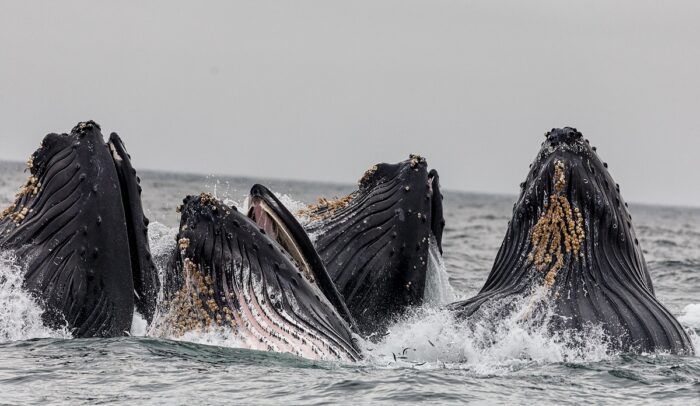In the 1950s there was only around 450 humpback whales left off the region surrounding the coast of Brazil. A new study shows 25,000 in the same region today.
This new research shows that the rebound of the species has been brought back to 93% of their estimated population pre-whaling. The study also estimates that the species should be back to 99% of their pre-whaling population size by 2030. This study named Assessing the Recovery of an Antarctic Predator from Historical Exploitation was published in the Royal Society Open Science last week.
Humpback whales were devastated by hunting between the early 1700s and mid 1900s. The western South Atlantic humpbacks were a main target of commercial whaling operations and were hunted nearly to extinction. Between the years of 1904 and 1916 alone nearly 25,000 humpbacks were killed. This fast decline in population is part of what makes the species near full recovery so remarkable.
Humpback whales were last hunted in the South Atlantic in 1972. The International Whaling Commission (IWC) banned commercial hunting of all whale species in 1986.
Alexandre Zerbini, co-author of the newest study about the western South Atlantic humpbacks, said of their repopulation, “This is a clear example that if we do the right thing then the population will recover. I hope it serves as an example that we can do the same thing for other animal populations.”
The researchers of this study also stated concern about how climate change is and will continue to affect humpback whale populations and their ecosystem. They stated in the research, “Continued monitoring is needed to understand how these whales will respond to modern threats and to climate-driven changes to their habitats.”
What other species of animals have recovered from mismanagement and exploitation? How might this successful repopulation influence conversations about climate change and ocean pollution?

Peter Schulte
Purpose Coach
Bellingham WA, USA / Lummi & Nooksack lands
Purpose statement: I reveal a world of beauty and goodness
Good News Newsletter
The latest laws, policies, science, and technology leading the way toward a brighter future